Below is a VIDEO showing about 15 minutes of one of the most famous debates of the 20th century: James Baldwin vs William Buckley at the Cambridge Union in February 1965. The proposition up for debate: “The American Dream has been achieved at the expense of the American Negro.” Baldwin thrashes Buckley, the final audience vote being 544 to 164 in favor of the proposition.*
 The VIDEO below begins with opening comments from the NET television host Norman St. John Stevas, a member of parliament. He exclaims about the audience’s size before setting out the proposition and program for the evening and introducing Baldwin and Buckley. Baldwin the famous novelist and essayist, author of Another Country, and Buckley the conservative—“in the American sense of conservative,” he hastens to add—author of Up from Liberalism and editor of The New Republic. I cut, then, to the end of Baldwin’s speech and the beginning of Buckley’s. Stevas also exclaims about the standing ovation Baldwin receives after his speech. It is truly extraordinary, and Baldwin seems at first shocked before we catch his smile of delight briefly amid the standing, cheering crowd. Then Buckley steps up to speak, and I fade out a few minutes later.
The VIDEO below begins with opening comments from the NET television host Norman St. John Stevas, a member of parliament. He exclaims about the audience’s size before setting out the proposition and program for the evening and introducing Baldwin and Buckley. Baldwin the famous novelist and essayist, author of Another Country, and Buckley the conservative—“in the American sense of conservative,” he hastens to add—author of Up from Liberalism and editor of The New Republic. I cut, then, to the end of Baldwin’s speech and the beginning of Buckley’s. Stevas also exclaims about the standing ovation Baldwin receives after his speech. It is truly extraordinary, and Baldwin seems at first shocked before we catch his smile of delight briefly amid the standing, cheering crowd. Then Buckley steps up to speak, and I fade out a few minutes later.
In his speech Baldwin brings out themes that anyone familiar with his writings—“copious writings,” Buckley says—will recognize, especially, perhaps, his insistence on treating the Negro as a real human being. “I am not a ward of the state,” “a missionary object.” Nor is the Negro a shining, pure innocent, as Harriet Beecher Stowe portrayed him with her Uncle Tom character. “We’re like anybody else,” he says. “We are mercenaries, dictators, murderers, liars.” Anyone familiar with William Buckley, Jr. will also see him as typically himself.
 Here I want to focus on Baldwin’s voice and Buckley’s, as well as two things Buckley in particular says—the first being about Baldwin’s voice. Early in his remarks he mentions Baldwin’s The Fire Next Time, which had an electric effect on the United States when it first came out in 1963. He doesn’t much say what the book is about, just that in it Baldwin didn’t use the “English accent he spoke exclusively in tonight.” The crowd murmurs. TV host Stevas quietly says something about the murmuring, which is in fact drowned out by the murmuring. Buckley himself probably realizes that he’s made a mistake and seems trying to rush in some other thoughts to cover up the mistake because, of course, Baldwin has not been “using” a British accent at all. Upon hearing Buckley’s accusation Baldwin raises his eyebrows in surprise, seemingly the only time he is surprised during the entire debate.
Here I want to focus on Baldwin’s voice and Buckley’s, as well as two things Buckley in particular says—the first being about Baldwin’s voice. Early in his remarks he mentions Baldwin’s The Fire Next Time, which had an electric effect on the United States when it first came out in 1963. He doesn’t much say what the book is about, just that in it Baldwin didn’t use the “English accent he spoke exclusively in tonight.” The crowd murmurs. TV host Stevas quietly says something about the murmuring, which is in fact drowned out by the murmuring. Buckley himself probably realizes that he’s made a mistake and seems trying to rush in some other thoughts to cover up the mistake because, of course, Baldwin has not been “using” a British accent at all. Upon hearing Buckley’s accusation Baldwin raises his eyebrows in surprise, seemingly the only time he is surprised during the entire debate.
Baldwin’s voice has as its base the rolling rhythms of the Harlem preacher he was as a teenager, but this has been overlayed with what some have called the “Black Atlantic voice”—that is, the accents of Black Americans who have lived or spent much time abroad, as Baldwin did, having left the United States for France the first time in 1948. He is also gay, which some imagine might also lend a certain tincture to his voice. But it is the Black Atlantic voice that fooled Buckley. You can hear it in many ex-patriot, near-expat, or widely-traveled Blacks—the one coming most to mind at this moment being Maya Angelou,** whom I was fortunate to get to know a little.
 But perhaps it is Buckley’s voice that is even more extraordinary. He’s been parodied many times, most famously by Robin Williams and Joe Flaherty, with Williams also darting his tongue quickly in an out, snake-like, between typical Buckley phrases like, “If you catch my drift,” which he used to challenge his opponents to follow his nuance and cleverness. The gravitas—a favorite Buckley word—of his voice is harder to place than Baldwin’s, but I have always—perhaps unfairly—considered it to be the epitome of the smug, hyper-self-assured voice of white privilege. The cramped logical flow of his arguments is hard to follow after his mistake of accusing Baldwin of speaking exclusively with an English accent. I don’t, in fact, fully catch his drift. He says, I think, that he must answer Baldwin as if he were a white man because, he says, “I can assure you that your color has nothing whatsoever to do with your argument.” It’s the old color-blind ruse. When I led the committee that crafted a Diversity Plan*** for a premiere Illinois school district, that’s the bat I was hit over the head with again and again and again. I was even accused of contributing to the downfall of Western civilization because I dared to say that color did matter. And I get it. One of the foundational principles of white privilege is the assertion that color does not matter, though plainly it does. A couple of times, when people were swinging the bat of a “color-blind society” at me, I simply switched to gender. Do you think it doesn’t matter if you’re male or female? I asked. That got through to much of the audience most times, though not hardly all. I get that, too, because almost everyone has an instinctive sense of gender, but not of color. Color is blind to so many—which is, again, foundational to white privilege, or to people of color just aching to be white, which I also get most of the time. But Buckley assured Baldwin that color didn’t matter, and that assurance delivered with that ultra-smug voice has always grated on my ear and conscience.
But perhaps it is Buckley’s voice that is even more extraordinary. He’s been parodied many times, most famously by Robin Williams and Joe Flaherty, with Williams also darting his tongue quickly in an out, snake-like, between typical Buckley phrases like, “If you catch my drift,” which he used to challenge his opponents to follow his nuance and cleverness. The gravitas—a favorite Buckley word—of his voice is harder to place than Baldwin’s, but I have always—perhaps unfairly—considered it to be the epitome of the smug, hyper-self-assured voice of white privilege. The cramped logical flow of his arguments is hard to follow after his mistake of accusing Baldwin of speaking exclusively with an English accent. I don’t, in fact, fully catch his drift. He says, I think, that he must answer Baldwin as if he were a white man because, he says, “I can assure you that your color has nothing whatsoever to do with your argument.” It’s the old color-blind ruse. When I led the committee that crafted a Diversity Plan*** for a premiere Illinois school district, that’s the bat I was hit over the head with again and again and again. I was even accused of contributing to the downfall of Western civilization because I dared to say that color did matter. And I get it. One of the foundational principles of white privilege is the assertion that color does not matter, though plainly it does. A couple of times, when people were swinging the bat of a “color-blind society” at me, I simply switched to gender. Do you think it doesn’t matter if you’re male or female? I asked. That got through to much of the audience most times, though not hardly all. I get that, too, because almost everyone has an instinctive sense of gender, but not of color. Color is blind to so many—which is, again, foundational to white privilege, or to people of color just aching to be white, which I also get most of the time. But Buckley assured Baldwin that color didn’t matter, and that assurance delivered with that ultra-smug voice has always grated on my ear and conscience.
That assurance is the first of Buckley’s assertions I wanted to focus on. The second, coming near the end of my excerpt, is that it wasn’t just Baldwin’s ancestors who worked to build the U.S.; his own ancestors did too. Here Buckley shows his naivete again, as he does throughout the debate, because he assumes that working hard is fairly compensated for all, which it is not. Obviously the vast majority of enslaved people profited not at all from their oppressors’ “work.” On top of that, there were laws and strongly enforced “customs” that prohibited Blacks from accumulating and handing down wealth and property, which has led to the astounding, shameful and growing racial wealth gap the U.S. experiences to this very day. I have written a lot about this—in “The Racial Wealth Gap and Home Ownership,” for example—so will let this go without further comment, except this: To hear this argument delivered by that smug Buckley voice always astounds me. In the first note below, I mention how the author of the piece I reference says that Buckley got “better” at seeing the realities of racism, but in the VIDEO below, his blindness, riding on the self-assurance of his smug voice, was on full display.
_______________
* A much fuller accounting of the 1965 debate, what led up to it and its aftermath, can be found in “When Buckley Met Baldwin” by Sam Tenenhaus in the June 2025 issue of The Atlantic. Of note is the author’s report that after his decisive defeat Buckley became less naive about racism and went on to greater prominence with his PBS show Firing Line, which became a platform for many important Black voices of the day, including several key members of the Black Panthers.
** This link takes you to an article entitled “Meeting Oprah.” But while she does make a show-stopping appearance, the article focuses on my meeting Maya Angelou, whom Oprah called Mother.
*** This link takes you to comments I made after the Diversity Plan passed. There’s a link in this post that takes you to the plan itself. You can also read more about it by going to Diversity Initiatives.


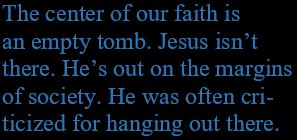
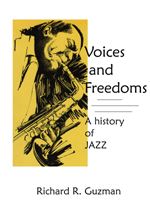







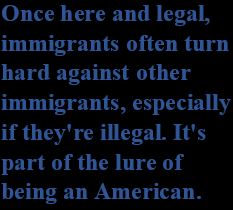


















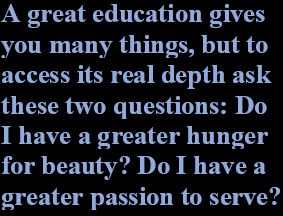

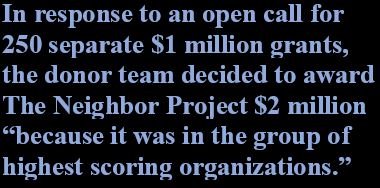

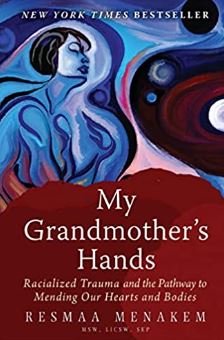
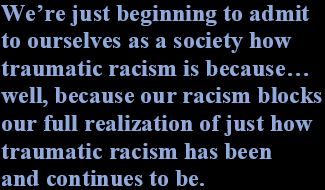
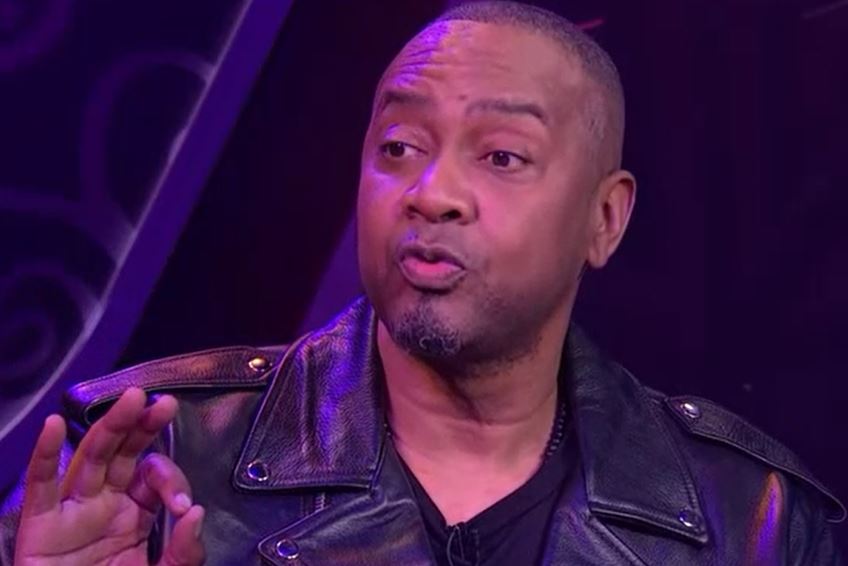
Is Disneyland Worth It?
But to return to the book a moment. It’s an academic exercise of the kind that gets many people mad as hell at elites. Mad as hell because conservatism, patriarchy, and heterosexuality are always taking it on the chin, always described as “ideologies”—which, of course, they are, but so at bottom is everything, I guess, including progressivism, including bread making and especially what an academic might call the objectification of bread and capitalist structures that distribute bread so unevenly. (MAGA does hate elitist rigamarole!)
So, being a kind of academic myself for many years, when we heard that one of our grandkids was performing twice at Disney—once at Disneyland and once at Disney California Adventure, the Pixar-centered theme park right next to Disneyland—and my wife said we should go, I at first hesitated for a couple minutes, though for a relatively unacademic reason. We’d have to buy our own tickets, and I heard they were expensive. Just last week I finished paying of the PayPal “Pay in Four” plan allowing me to make four $187.50 payments. $750: $325 each for the two days, $40 each day for parking, plus miscellaneous fees and taxes. Ideology was decidedly second to the monetary outlay, which had me thinking, Is All This Worth It? as we stepped on the tram from the Mickey and Friends parking structure taking us first to a security check before we entered the park.
In his essay “The Crack-Up,” F. Scott Fitzgerald wrote that, “The test of a first rate intelligence is the ability to hold two opposed ideas in the mind at the same time, and still retain the ability to function.” In the early 1800’s the poet John Keats coined the term “negative capability,” a related concept, which describes a person’s ability to embrace uncertainty, mystery and doubt without the “irritable reaching after fact and reason,” the operative word here being “irritable.” Sure, Disney’s doing everything so well is bought at the price of a certain degree of fascism. Our soon-to-be daughter-in-law, who is the conductor of the wonderful choir our granddaughter’s in, told us she usually speaks more at a concert, but Disney demands that if you speak you have to submit a script. A “handler” attends your every move, ready to cut the mic if you go off script too much. So she said nothing at all. In the end, though, we hold this uber-control in tension with Disney’s hap-hap-happiness. I’m reminded of what Greil Marcus wrote of a James Brown performance at the Apollo: “Every moment rehearsed, and every moment real.” Not that Disney has that kind of “reality.” In the VIDEO below the fake snow showering down on a warm California night to the sounds of “The Christmas Song” does strain credulity. But we grant Disney its function as an oft-needed escape. “We could make this an every-year thing!” my wife said. Well….
* The VIDEO below shows only one song from the choir’s concert, but it was so good, and the students so evidently happy to be singing, that any Christmas, or any time you feel like you need a little Christmas, you should watch the whole thing HERE.